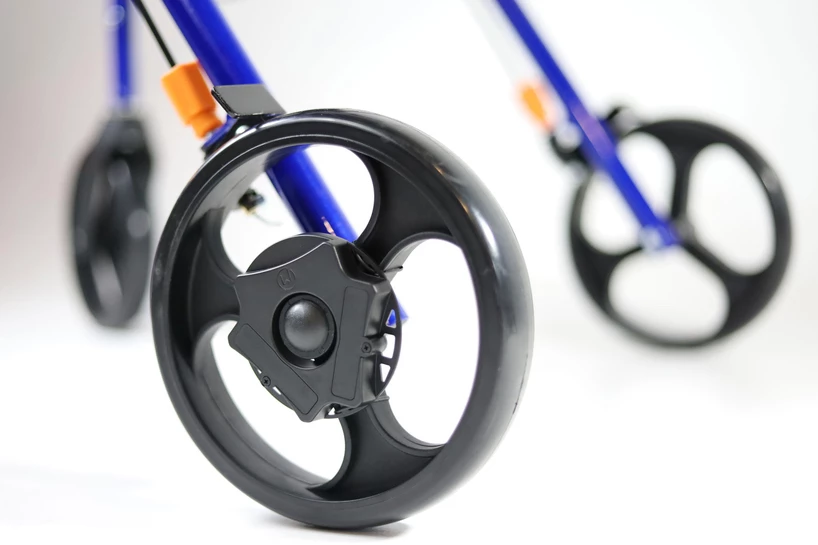It's important to monitor the physical activity level of seniors living on their own, as a decrease may indicate health problems, depression, cognitive decline, or a debilitating fall. A new device does so simply and unobtrusively, by hitching a ride on the senior's walker.
Known as WalkWise, the tool was created by WalkWise company CEO Peter Chamberlain when he was still an engineering grad student at MIT.
At the time, he was looking for a way of remotely checking on the well-being of his grandmother, but figured that she probably wouldn't want to wear a device such as a Fitbit every day. He likewise thought that systems involving motion detectors installed at various locations in her home would be too complex.
The alternative that he created took the form of an accelerometer-equipped device installed on the front wheel of an existing third-party walker. As the senior uses that walker to move around their home, the device records the wheel revolutions, and utilizes a Bluetooth module to relay that data to a cellular router plugged into an electrical outlet on one wall.
That router in turn relays the data to an online server, allowing family members, physical therapists or other caregivers to remotely check on the senior's activity levels via a personalized onscreen dashboard. Importantly, the WalkWise unit can also detect when the walker (and thus perhaps its user) has fallen over, prompting it to send an alert that the senior may have suffered a fall.

The device is powered by two AA batteries, which should reportedly be good for one year of use. It's already commercially available, and is being used by health care organizations in 12 US states. Individual users initially pay a US$40 initiation fee, after which a $20 monthly subscription is required.




